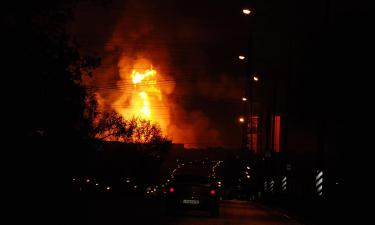Foreign Investors Retreat From Latin American Economies - 10 April, 2003 - News
According to reports, foreign direct investment fell by one third in 2002. This is the third straight year of decline
The Economic Commission for Latin America and the Caribbean (CEPAL, by its initials in Spanish) revealed on Tuesday that foreign direct investment flows into Latin America plunged by 33 percent, from $84 billion in 2001 to $56.7 billion in 2002. The United Nations' agency based in Santiago, Chile, reported that the slowdowns of flow to the region came as a consequence of the U.S. recession, the collapse of both Argentina's and Brazil's financial system and the global competition from China, a magnet for investors.
The 33 percent drop of 2002 is more sharply than even two previous years of falling number. In 2001, foreign investment fell 11 percent and 13 percent in 2000. CEPAL's study reports about money flowing from foreign companies that is used to build new business or acquire old ones.
"In contrast to 2001, this decline in the region's inflows is worse than general trends worldwide", reads the survey. "Not only has the falling trend continued for the third year running, but also the pace of the decline has risen", concluded Jose Antonio Ocampo, Executive Secretary of CEPAL and responsible for the report.
A combination of worldwide and local factors explains the poor behavior of Latin American economies in decades. CEPAL points to "the sharp decline in the share prices of many transnational corporations (TNCs), mainly those associated with the new economy, the steep drop in privatization deals and acquisitions of international assets and the downward spiral in the amount of financing generally available to TNCs."
Also, political instability played its part to make foreign investors to retreat from Latin America. Crises in Argentina and Venezuela, the aggravation of the armed conflict in Colombia and the trembling financial systems of Brazil and Uruguay "were also conducive to increased risk aversion and reduced foreign investment, all of which tended to heighten uncertainty on the part of foreign investors," CEPAL reports.
Devaluation of local currencies also shied away investors from putting money in relatively non-profitable markets and where demand was falling.
In Mexico and the Caribbean, former direct investment inflows fell 40 percent in 2002. In Mercosur and Chile, in turn, dropped 35 percent. These countries saw biggest rise in the previous decade and the sharpest fall in the new millennium. In 2002, inflows were slightly higher than the annual average posted between 1995 and 1999. There, market-seeking strategies prevail among transnational corporations and inflows were stymied by the completion of privatization processes, economic crises in Argentina and Uruguay, and lower growth in Brazil and Chile.
However, the situation may change soon. IMF latest reports say that Argentina and Brazil will recover in 2003; specially Argentina, where analysts expect a GDP growth of 5% in the first semester. Brazil is also optimistic: after the first 100 days in office, President Lula believes "the world has started trusting again" and said country's economy would grow in 2003.
But while the drop in foreign investment in Latin America means countries are harder pressed to come up with capital to pay their foreign obligations, debt servicing and profits and royalties on investment, it does not necessary affect job creation. Moreover, after devaluation, Argentina's economy started substituting imports, as local companies began to produce what it was once imported.
As Latin America is a typical commodity trading economy, future growth will be subject to the outcomes of the war in Middle East. If the war is short, as it is expected to be, GDP's growth would slowdown again, as commodities' prizes will fall. On the contrary if the military conflict extends in time and space, commodities would be an excellent business to invest into and Latin American economies could grow in the short term.
Hernan Etchaleco PRAVDA.Ru Argentina
Photo: Brazil's slums Related links:
Subscribe to Pravda.Ru Telegram channel, Facebook, RSS!



